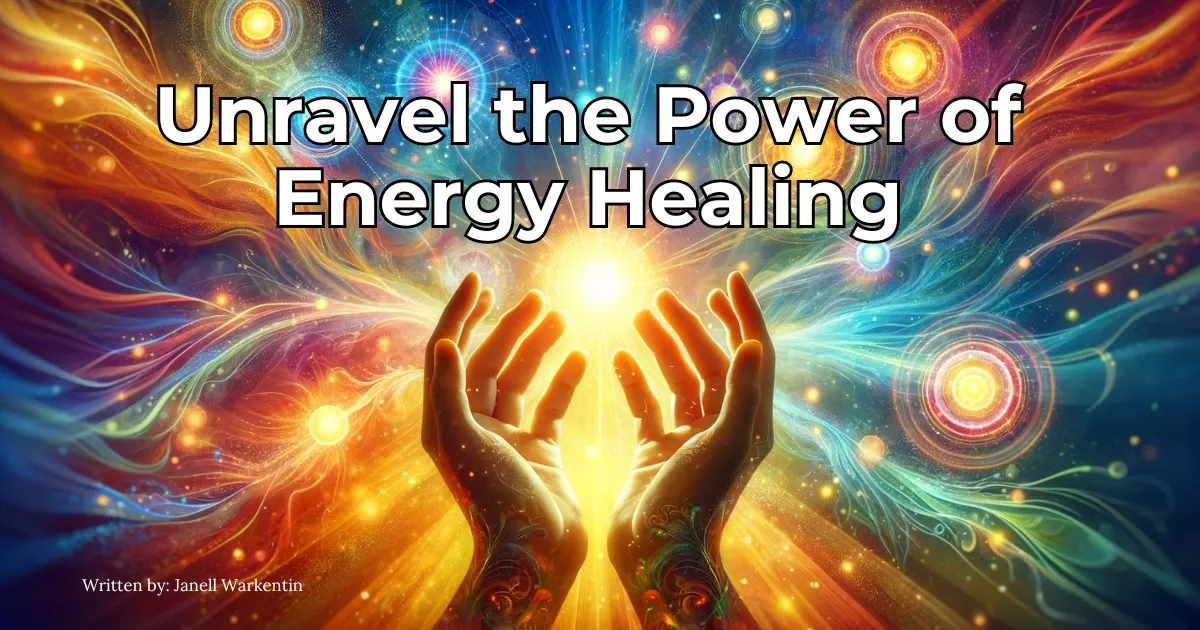Ways to Reduce Emotional and Energetic Stress

Living in today's fast-paced world, many of us face a constant battle with stress. Janell Warkentin, founder of janellrae.com and a pioneer in energy healing with over two decades of experience, understands this all too well. Whether it's due to work pressures, personal challenges, or other external stressors, Janell recognizes the profound impact of stress on our emotional and energetic well being. Her unique approach, skillfully combining educational therapy and energy healing, targets not only our mental state but also our physical health, guiding individuals towards discovering their true selves and unlocking their potential. In this article, drawing from Janell's extensive experience and holistic practices, we will explore effective ways to reduce emotional and energetic stress, offering valuable insights on managing and alleviating stressors.
What is the Stress Response and How to Manage It?
Understanding the Stress Response Mechanism
When faced with a stressor, our body's stress response mechanism kicks in, releasing cortisol – commonly known as the stress hormone. This physiological response is the body's way of preparing itself to cope with perceived threats or challenges. However, chronic stress can lead to an overactive stress response, which can have detrimental effects on our health and well-being.
Effective Strategies for Managing Chronic Stress
To reduce stress levels, it is crucial to adopt effective stress management strategies. These may include regular exercise, maintaining a healthy diet, getting an adequate amount of sleep, and engaging in relaxation practices. By incorporating these lifestyle changes, individuals can better cope with stress and its adverse effects.
The Role of Mindfulness in Stress Management
Mindfulness, the practice of staying present and aware of one's thoughts and feelings without judgment, has shown to be highly beneficial in stress management. By cultivating mindfulness, individuals can observe their stress reactivity and develop healthier ways to respond to stressors. Practicing mindfulness techniques can help reduce the impact of stress on both the mind and body.
Identifying Signs of Stress and Its Effects on the Body
Common Signs Indicating High Stress Levels
Recognizing the signs of stress is essential for early intervention. Common indicators of high stress levels include irritability, fatigue, changes in appetite, difficulty sleeping, and heightened anxiety. By identifying these signs, individuals can take proactive steps to address and minimize stress in their lives.
Physical Effects of Prolonged Stress on Health
Prolonged exposure to stress can take a toll on the body, leading to various physical health issues such as high blood pressure, weakened immune system, digestive problems, and muscle tension. It is crucial to address the root cause of stress to prevent these detrimental effects on overall health and well-being.
Practicing Mindful Relaxation Techniques to Alleviate Stress
Engaging in mindful relaxation techniques, such as deep breathing exercises and guided imagery, can help alleviate stress and promote relaxation. By incorporating these practices into daily routines, individuals can effectively manage stress levels and cultivate a sense of calm and tranquility.
Utilizing Mindful Practices to Relieve Stress
Benefits of Mindfulness Meditation for Stress Relief
Mindfulness meditation is a powerful tool for reducing stress and promoting emotional well-being. By focusing on the present moment and observing thoughts without judgment, individuals can enhance self-awareness and develop a more positive outlook on life. Regular practice of mindfulness meditation can help individuals cope with daily stressors more effectively.
Using Progressive Muscle Relaxation for Stress Reduction
Progressive muscle relaxation involves tensing and relaxing specific muscle groups to release physical tension and promote relaxation. This technique helps individuals become more attuned to their bodies and reduce muscle tension caused by stress. By incorporating progressive muscle relaxation into their daily routine, individuals can experience profound stress relief.
Massage Therapy as a Relaxation Practice
Massage therapy is another effective relaxation practice that can alleviate stress and tension in the body. Through manipulation of soft tissues, massage helps improve circulation, reduce muscle soreness, and promote overall relaxation. Regular massage sessions can be a valuable addition to a stress management routine.
Exploring Various Methods to Relieve and Manage Stress
Incorporating Breathwork Techniques to Calm the Mind
Conscious breathing techniques, such as deep breathing exercises and mindful breathing patterns, can help calm the mind and reduce stress levels. By focusing on the breath, individuals can center themselves in the present moment and alleviate anxiety and tension. Incorporating breathwork into daily routines can be an effective way to manage stress.
Heart Rate Variability and Its Impact on Stress Reduction
Heart rate variability (HRV) is a measure of the variation in time intervals between heartbeats, reflecting the heart's ability to adapt to changing demands. High HRV is associated with lower stress levels and better emotional resilience. By utilizing techniques to improve HRV, such as relaxation practices, individuals can enhance their stress response and overall well-being.
Finding the Best Approach to Energetic Stress Reduction
Exploring various approaches to energetic stress reduction, such as acupuncture, Reiki, or energy healing practices, can help individuals rebalance their energy flow and promote emotional well-being. By addressing energetic imbalances, individuals can experience greater vitality and resilience in the face of stressors.
Understanding the Link Between Mindfulness and Energetic Stress
The Connection Between Mindful Awareness and Energetic Balance
Mindful awareness is closely linked to energetic balance, as practicing mindfulness allows individuals to connect with their inner energy and promote harmonious flow within the body. By cultivating mindful awareness, individuals can release blocked energy and enhance their emotional resilience and vitality.
Reducing Muscle Tension Through Mindful Practices
Mindful practices, such as yoga and tai chi, can help reduce muscle tension caused by stress and promote relaxation. By incorporating movement-based mindfulness practices into daily routines, individuals can release physical tension and improve their overall well-being. These practices also enhance body awareness and promote a sense of calm and balance.
Living in the Present Moment to Alleviate Energetic Stress
Embracing the present moment and letting go of worries about the past or future can help alleviate energetic stress and promote a sense of peace and well-being. By practicing mindfulness and staying grounded in the present, individuals can experience a profound shift in their emotional and energetic state, allowing for greater resilience in the face of life's challenges.
Question & Answer
Q: What are the effects of stress on the body?
A: Stress can lead to various physical and emotional effects such as headaches, fatigue, muscle tension, and increased anxiety.
Q: How can I help reduce stress in my daily life?
A: Engaging in activities like meditation, deep breathing exercises, and spending time with loved ones can help alleviate daily stress.
Q: What are some effective strategies for relieving stress?
A: Some effective strategies for relieving stress include practicing mindfulness, exercising regularly, and maintaining a healthy work-life balance.
Q: Why is it important to find ways to relieve stress?
A: Finding ways to relieve stress is crucial for your overall wellbeing as chronic stress can have negative impacts on both your physical and mental health.
Q: How does the body respond to stress?
A: When faced with a stressful situation, the body releases cortisol and adrenaline, which are hormones that prepare the body for a 'fight or flight' response.
Q: Is meditation a helpful way to reduce stress?
A: Yes, meditation is a wonderful way to relieve stress as it can help calm the mind, improve focus, and promote relaxation.
Q: What are some common stressors that people experience?
A: Common stressors include work pressure, financial difficulties, relationship issues, and major life changes.
Q: How does stress affect our energy balance?
A: Prolonged stress can disrupt our energy balance, leading to feelings of fatigue, irritability, and difficulty concentrating.
If you have any questions about stress—or want to explore energy healing further—contact Janell at [email protected] or visit her website at janellrae.com for more information.
©2024 janellrae.com





